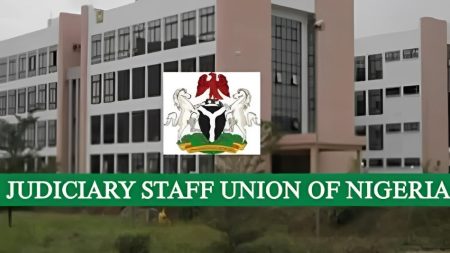The Ashanti Regional Prisons Command, spearheaded by Deputy Director of Prisons (DDP) James B. Mwinyelle, has initiated a significant project to establish a new correctional facility at Asante Bekwai Nsuaem. This initiative is designed to address the persistent issue of prison overcrowding while simultaneously enhancing rehabilitation programs, particularly through a renewed focus on modernized agricultural practices. The project aligns with the broader vision of the Director General of Prisons, Mrs. Patience Baffoe-Bonnie, to leverage the agricultural potential within the prison system to contribute to national food security. This strategic move promises to transform the correctional landscape in the region, offering a more humane and productive environment for inmates.
The confirmation of the land acquisition came during a crucial meeting held at the Dadease Chief’s Palace on May 26, 2025. The meeting brought together sub-chiefs and community leaders to discuss the proposal put forth by the Ghana Prisons Service. DDP Mwinyelle articulated the vision for the new facility, outlining plans for expanded dormitories, a dedicated vocational training center, and, importantly, a robust agricultural development program. The emphasis on commercializing agricultural activities within the prison underscores the commitment to not only improving food security but also providing inmates with valuable skills and opportunities for reintegration into society upon release.
The potential benefits of the new prison extend beyond the walls of the facility, impacting the surrounding community in several positive ways. Chief Superintendent of Prisons James Adu-Mensah Danfoku (Rtd), Ashanti Regional President of the Retired Prison Officers Association of Ghana (REPOAG), highlighted these advantages. He assured the assembled chiefs that the establishment of the Settlement Camp Prison would contribute to improved security in the area, create employment opportunities, and stimulate economic growth for local businesses. The presence of the prison would necessitate collaboration with other security agencies, bolstering the overall safety net within the Bekwai municipality and the surrounding stool lands. Furthermore, the prison’s operational needs would create a demand for local goods and services, providing a boost to the local economy.
Danfoku drew parallels with the successful implementation of the Duayaw Nkwanta Settlement Camp Prison, citing it as a model for the positive impact such a facility can have. He pointed to the economic growth experienced in that area and the strengthened security presence as tangible evidence of the potential benefits. He also emphasized the commitment of the Ghana Prisons Service to recruit eligible young men and women from the local community, providing them with career opportunities within the service. This localized recruitment strategy further solidifies the prison’s integration into the community fabric.
Nana Twum Barimah, Chief of Asante Bekwai Dadease, expressed strong support for the project, commending the Ghana Prisons Service for their initiative. Beyond endorsing the core concept, the Chief also proposed an innovative addition: the establishment of a water production plant within the prison complex. Envisioning a brand named “Adum Mineral Water,” he saw this as an opportunity to further boost the local economy and provide a readily available product for the community while also generating revenue for the prison. This entrepreneurial vision complements the agricultural focus, showcasing the potential for multifaceted economic activity within the correctional setting.
Recognizing the urgency of addressing overcrowding in existing prisons, Nana Twum Barimah urged cooperation from local farmers and landowners whose lands would be utilized for the project. He emphasized the importance of making the necessary land available to alleviate the dire conditions in overcrowded facilities. His own visit to the Central Prison underscored the pressing need for decongestion, solidifying his commitment to supporting the new prison’s development. The collaborative spirit demonstrated by the Chief and the community leaders highlights the shared understanding of the project’s importance and the collective will to see it through. The delegation from the Regional Prisons Command, including the Regional Public Relations Officer and Estates Officer, further demonstrated the commitment of the service to this transformative initiative. Their presence underscored the collaborative approach being taken, involving key stakeholders in the planning and implementation process.













